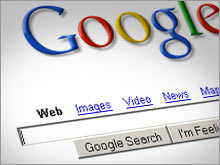Google battles Microsoft head-onThe search and advertising giant is now selling a cheap competitor to Microsoft Office. Fortune's Adam Lashinsky watches as Google takes the gloves off.SAN FRANCISCO (Fortune) -- For more than a year now, whenever someone has accused Google (Charts) of targeting Microsoft's sweet spot - its Microsoft (Charts) Office productivity software - CEO Eric Schmidt has had a ready answer. That's missing the point, he likes to say, suggesting that Google is up to something so completely different from Microsoft that it's simplistic and downright silly to suggest that the two compete. Google's Web-based calendar and e-mail services are nothing like Microsoft's software, he'll say; he continued to make the point after Google bought a small Web-based word-processing product, now called Google Docs, and after the company unveiled an Excel-like spreadsheet program, now Google Spreadsheets.
But on Thursday the facade may come down altogether: Google will launch a paid version of its documents, spreadsheets, calendar and email programs - a package that has all the elements of Microsoft Office for a fraction of the price. Google's tiny enterprise group already has been marketing a free version of the package to small businesses, and it claims 100,000 users. What's new is an expanded version for $50 per account per year that includes telephone support and 10 gigabytes of storage capacity, compared with the 2 gigabytes that come for free with a Gmail web-based e-mail program. Though Google is targeting small businesses - the kind whose IT departments don't manage giant e-mail systems - it has signed up General Electric (Charts) and Procter & Gamble (Charts) for small trials. Google still isn't distributing software, of course. But then Microsoft has begun offering Web-based programs as well. Its Outlook 2007 program, for instance, allows users to share their calendars with non-Microsoft Web programs. The days are gone when Google announces a product and the competition trembles. Google's enterprise ambitions are modest. It's unlikely to dislodge more than a fraction of the 450 million users of Office. Even a rousing success would barely move the needle for Google. If all 100,000 of its current users signed up, for example, it'd mean an additional $5 million in annual revenue. That won't even help defray food costs at Google's cafeterias. (Google's revenues for 2006 were $10.6 billion.) Still, that Google even cares to try to sell a product against Microsoft in its core area of expertise speaks to Google's ambitions - as well as its yearning for revenue streams that go beyond advertising. According to Dave Girouard, the vice president for Google's enterprise group, the productivity package will be profitable at $50 a year. Many corporations pay about $600 a year for employee e-mail, he says, and half the employees in the U.S. don't even have an e-mail account. Selling Web programs to businesses also allows Google to see if it can replicate its ability to change products rapidly, which has been such a success in the consumer area. "New stuff shows up fast," Girouard says. Of course, companies claiming they were about to crack the small- and medium-sized market long have sounded like the merchants of old who hoped to sells shoes in China. All those feet! Google selling enterprise software, even as an online service - seems so pedestrian, so un-Googley. It even uses the word "suite" in its announcement. None of that is any reason not to try, of course. When Google dramatically increased the storage capacity of Gmail its competitors were forced to follow suit. Whether or not its new package is successful, this could force a dramatic cost reduction in the expense of corporate e-mail programs. If that's the case, IT managers won't care what Eric Schmidt calls Google's products - other than cheap. |
Sponsors
|

